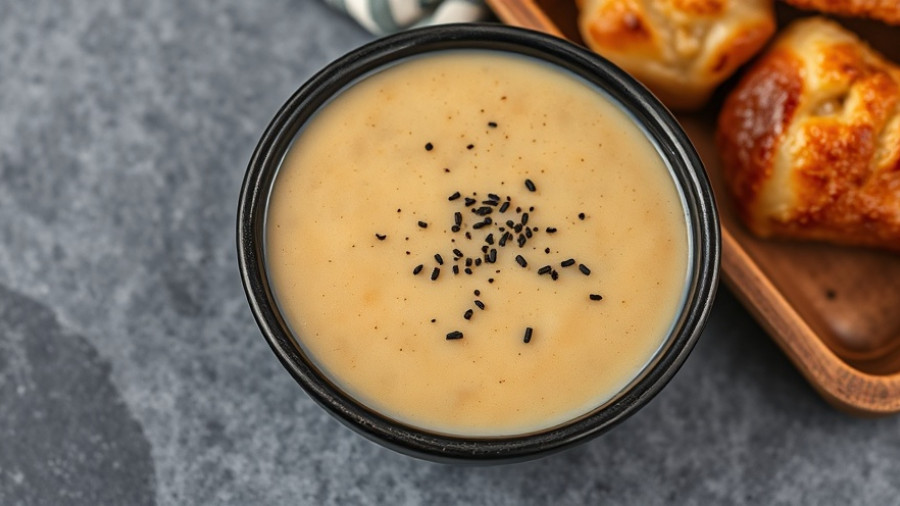
A Nutritional Perspective on Ham Gravy: Essential Health Benefits
Ham gravy, oft overlooked in the culinary arena, can be a surprisingly beneficial addition to your dining table, particularly for those looking to maintain a robust immune system and bolster recovery from daily stresses, including workouts and illness. While it may be more commonly associated with holiday feasts, its potential nutritional merits warrant exploration.
Unlocking the Flavor Potential of Ham Drippings
Utilizing ham drippings as the foundational base of gravy not only enhances flavor but maximizes nutritional output. These drippings are rich in flavors and contain fats that help the body absorb fat-soluble vitamins. When crafted correctly into a ham gravy, these drippings metamorphose into a creamy sauce that can elevate dishes beyond their typical salinity, melding seamlessly over every bite of glazed ham or poured generously over mashed potatoes.
How to Optimize Ham Gravy for Health
The classic preparation of ham gravy, as noted in recent recipes, emphasizes unsalted butter and half-and-half as key ingredients. This approach is essential for maintaining a low sodium profile while still achieving the desired creamy texture. Using unsalted butter also allows for better control over the final seasoning of the dish. Importantly, for those with gluten sensitivities, leveraging gluten-free all-purpose flour ensures that this culture-embedding gravy can be enjoyed without hesitation.
Why Ham Gravy is Surprisingly Versatile
Traditionally, gravy has been viewed as a sideline actor in the meal, but when paired correctly, ham gravy can shine as a vibrant part of a well-rounded diet. It works perfectly drizzled over a variety of dishes, such as garlic mashed potatoes or even accompanying a robust baked pork tenderloin. The adaptability of ham gravy at your table can play a role in ensuring a comprehensive nutrient intake alongside beloved main courses.
Future Trends in Comfort Foods: Healthier Gravy Recipes?
As consumers continue to lean towards healthier versions of traditional comfort foods, ham gravy is likely to evolve. Food enthusiasts and nutritionists alike are exploring alternative ingredients, such as coconut milk or nutritional yeast, to adapt the rich creaminess of traditional recipes without compromising on health. This could lead to a renaissance within the meal planning domain, making comfort food more nutritious without sacrificing flavor.
Decisions You Can Make for Healthier Eating
For health-conscious individuals, understanding the composition of ingredients is vital. When preparing ham gravy, consider sourcing higher quality, ethically raised ham which often has better nutrient profiles. Making ham gravy at home also allows for control over preservatives and artificial additives found in many store-bought alternatives. By preparing this dish yourself, you also avoid the excessive sodium that flourishes in prepackaged gravies.
Conclusion: Elevate Your Meal with Ham Gravy
Ultimately, the preparation of ham gravy can be a simple yet effective avenue for enhancing both flavor and nutrition on your plate. With its adaptability and nutrient-friendly properties, it deserves a place in the repertoire of health-conscious cooks. Taking the time to craft this gravy from scratch not only celebrates the culinary heritage associated with comfort foods but also supports healthy eating practices. If you haven’t already, consider incorporating ham gravy into your holiday meals and everyday dishes to enrich your dietary experience!
 Add Row
Add Row  Add
Add 







Write A Comment